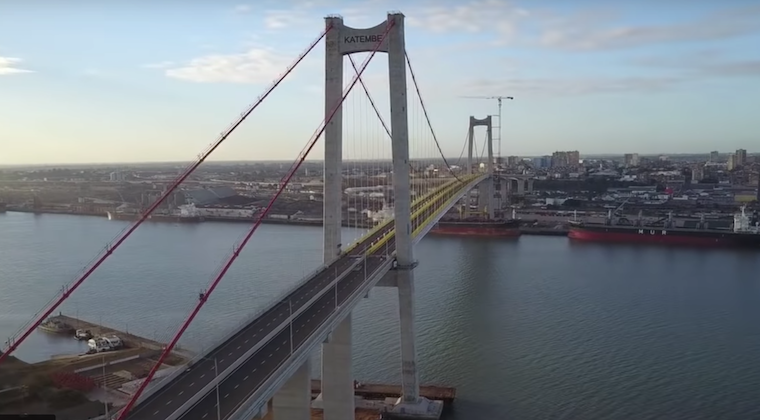Mozambique opens 3km-long suspension bridge
Published on November 13, 2018 at 2:21 PM by Face of Malawi
China’s massive investment on the continent continues with the opening of Africa’s longest suspension bridge in Maputo, Mozambique. Among other improvements, the 3km-long bridge will reduce travel time between Maputo and KwaZulu-Natal from six hours to 90 minutes. But it comes at a cost to locals.
Mozambique has officially opened the Maputo-Katembe Bridge, a 3km-long (3 041 metres) suspension bridge that extends for 680 metres over Maputo Bay and connects the Mozambican capital of Maputo on the northern bank with Katembe on the southern bank. The twin-tower bridge also straddles the Indian Ocean inlet of Espirito Santo estuary.
The bridge breaks the record as the longest suspension bridge in Africa previously held by the Matadi Bridge in the Democratic Republic of Congo. Its inception was part of an improved transportation network plan, as visualised by former president of Mozambique, Samora Machel. Its construction stalled due to civil unrest in the country and, although revived in 2008, fell through again until China’s intervention in 2011.
After a long drawn-out settlement, China went on to channel US$785 million into the construction of the Maputo-Katembe Bridge over four years under the management of the China Road and Bridge Corporation. The loan agreements towards the financing of the project – like many others across Africa – are not public knowledge.
Speaking at the launch of the bridge, KwaZulu-Natal’s Department of Economic Development, Tourism and Environmental Affairs is quoted by The South African website as saying, “The road will see the travel time between Maputo and Kosi Bay, KwaZulu-Natal’s east coast border post, drastically reduced: from six hours to 90 minutes. This is a huge achievement. It will boost trade and tourism between South Africa and Mozambique.”
Like the Source of the Nile Bridge in Uganda, which comes at a cost to locals because Boda bodas, the motorcycles commonly used by locals to transport just about anything, are forbidden from using it, the Maputo-Katembe Bridge will cost locals an exorbitant US$2.60 to cross.
Source : This Is Africa




